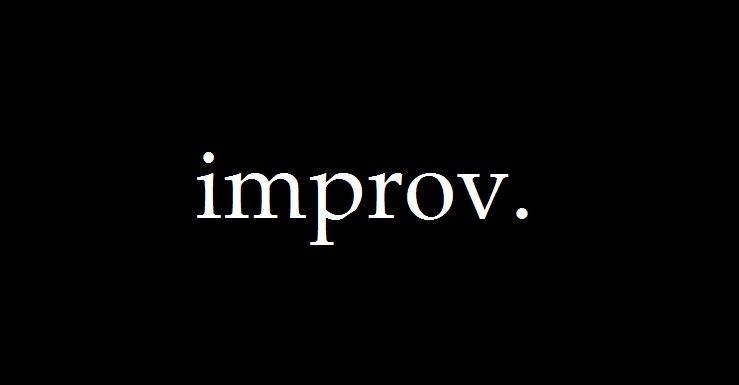I’ve always enjoyed improv, wanted to go deeper, and recently signed up for lessons – and it’s been a blast, revisiting and learning what goes behind this art form — and simply developing an acute laughing disorder during class hours.
Here are some key notes to myself:
- Choice: The inner critic and the inner champion show up in improv all the time, and are essentially 2 sides of the same coin. More often than not, we hold the choice of who to listen to.
- Should v Could: The inner critic murmurs what should have been. The inner champion suggests what could be an alternative.
- Go ahead: When you are on stage, you ain’t got a clue what you’re gonna say and how the audience will react. The inner critic murmurs you’ll mess up. The inner champion asks you to go out there and have fun. Extend the stage metaphor to several new things we want to start in life, and it’s kinda the same story: pays to just go ahead and have fun. What’s the worst that can happen, when He’s got our back?
- Spontaneity: Spontaneity enables you to lower your guard. And it gives permission to others around you to lower their guards. That’s when genuine connection happens, both on stage with the audience, and IRL.
- Laugh it off: As an unwritten class rule, we celebrate goof-ups by laughing it off. The bigger the goof-up, the more hysterical the laughter. How would we fare as a society if we embraced this same credo? And how would children fare, if parents changed their own reactions to their kids’ perceived failures?
- Yes, and: Improv thrives on saying yes to the other person’s story, and building on it. At times, saying no or being critical is the easiest thing. But beautiful things are built – on stage, and out there in the world – by acknowledging each person’s contribution and merging it with the whole.
- Present: Listening forms a critical part of improv because it gives you something to work off of. More importantly, active listening requires you to be present. In that moment. Right there. Good thing, phones are not allowed in class. Notifications, anyone?
- Presence: Eye contact matters in improv. It fortifies connections, tells the other person that we see them, and acknowledges their presence. As we emerge from this Zoom world, shouldn’t our in-person meetings IRL have more presence acknowledgment?
- Seriously, funny: Improv is serious art, taken seriously by people who don’t take themselves too seriously. Much like living life – take what you do seriously, but come on, don’t be uptight, and take yourself too seriously.
Seems only apt to end this on a marriage joke:
“Any husband who says, ‘My wife and I are completely equal partners’, is talking about either a law firm or a hand of bridge.” — Bill Cosby
Credits: Picture Credit and Joke Credit









Comments & Discussion
16 COMMENTS
Please login to read members' comments and participate in the discussion.